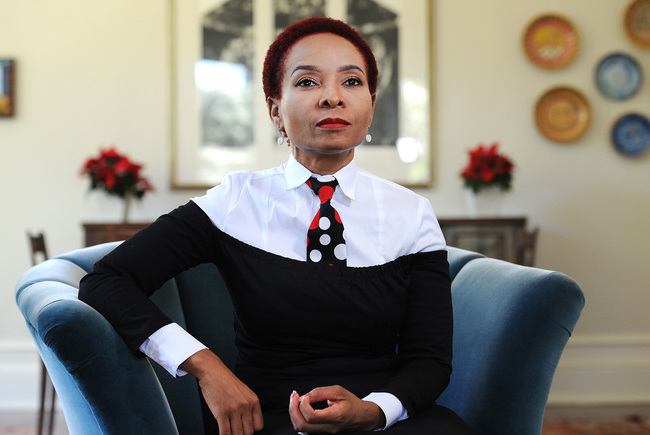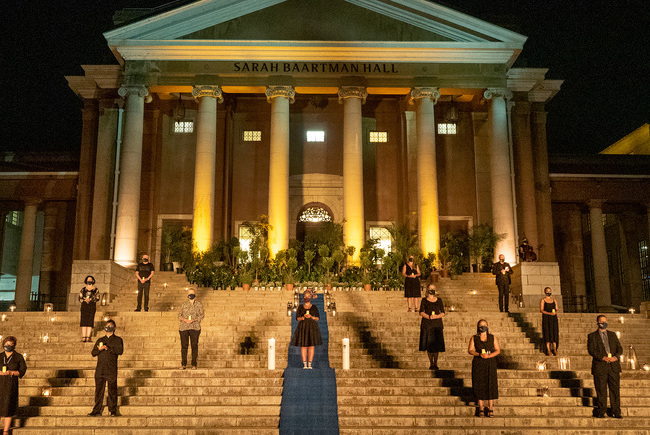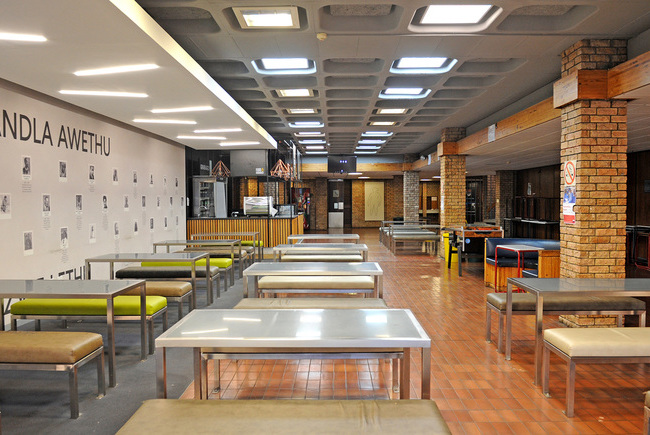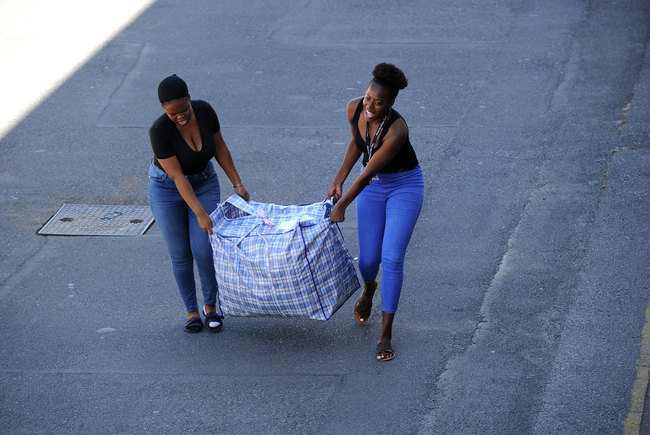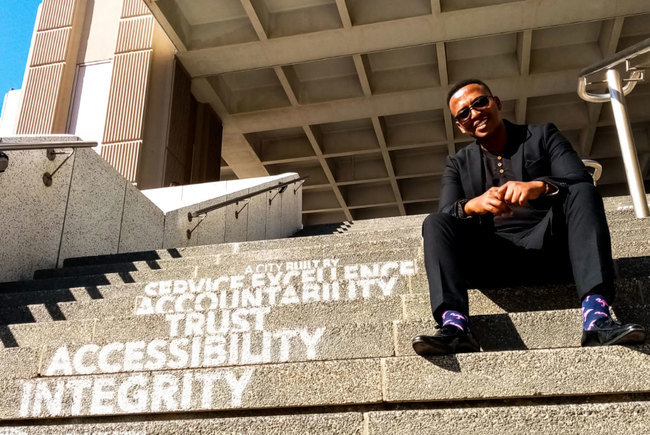UCT students keep elderly citizens company
17 September 2020 | Story Carla Bernardo. Read time 4 min.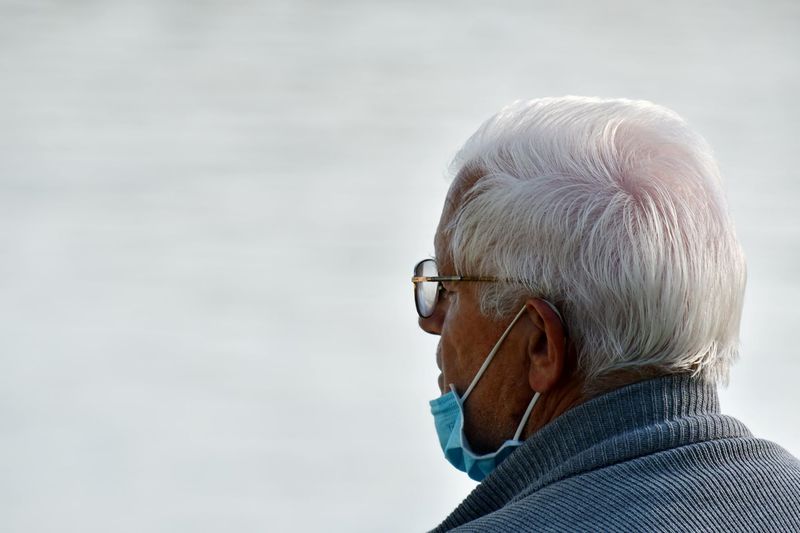
A group of medical students from the University of Cape Town (UCT) are keeping elderly citizens company during the national lockdown – from a safe distance. The initiative is known as Adopt a Granny/Grandpa and is the work of the student-led UCT Surgical Society (SurgSoc), in partnership with social housing provider Communicare.
SurgSoc was established in 2006 and is affiliated with the Department of Surgery at Groote Schuur Hospital. It’s a group of over 600 medical students who have a passion for surgery, research and outreach. Before the pandemic, their activities included arranging talks, workshops, research projects and outreach initiatives.
During the earlier stages of the lockdown, Communicare approached SurgSoc after the students had run a successful vaccination education campaign with elderly residents. The students jumped at the opportunity, this time by providing elderly residents with companionship during the lockdown.
“This initiative is a unique opportunity to give back and assist our fellow community members through lockdown,” said Alana Williams, SurgSoc’s head of social events and outreach, and a fifth-year medical student.
“The elderly are so often forgotten in many projects and aspects of society, and this initiative was an excellent opportunity to honour them. They have a wealth of knowledge and experience to share.”
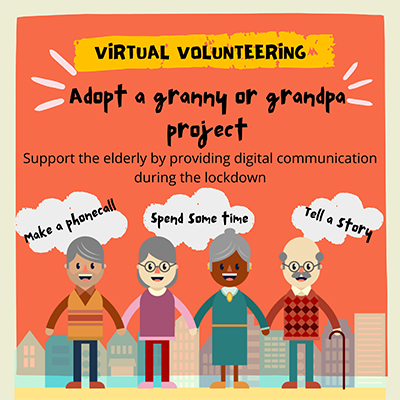
When the ongoing initiative was launched in July, Communicare paired volunteers and residents based on common interests and values. Volunteers were also provided with a list of guiding questions, tips and techniques to assist them with making weekly phone calls to their paired granny or grandpa.
“It’s an excellent opportunity for bonding, sharing experiences and providing a kind and compassionate listening ear,” said Williams.
She added that if volunteers are worried about the health and well-being of their paired grandparent, Communicare is available for additional assistance.
Golden nuggets
Williams, who is one of the volunteers, said that she has received many “golden nuggets of knowledge” from her paired granny. She added that her adopted granny also inspired her with her active lifestyle, which includes long walks, yoga and meditation.
Chanelle Pretorius, another student volunteer, said that the greatest lesson she has learnt from her adopted grandpa is the value of family.
“Nothing cheered him up more than speaking about his children and grandchildren. I could almost hear him beaming with pride,” she said.
Pretorius, who is a fourth-year medical student, wanted to volunteer in the hopes that she could help ease the suffering of elderly people during lockdown. She said that the loneliness many older people face has been exacerbated by the pandemic, and those who do have caring families have been cut off from their support systems.
“I thought this was a great way to provide support and upliftment to a granny or grandpa who is most likely missing their lifestyle and support systems.”
While Pretorius hoped that the initiative would provide her with an opportunity to uplift her adopted grandparent, she found herself receiving “heaps of joy and upliftment” in return.
“I never realised how much I had been missing human connection until forging a new bond via telephone.”
Experience and knowledge
The students hope that the initiative will continue even after lockdown restrictions have been lifted.
Williams said that SurgSoc wants to increase the number of student volunteers and would like to branch out into other projects that enhance the health and well-being of elderly people.
“We can learn so much from the grannies and grandpas who have so much experience and knowledge that they can pass onto us as young students and emerging health professionals.”
 This work is licensed under a Creative Commons Attribution-NoDerivatives 4.0 International License.
This work is licensed under a Creative Commons Attribution-NoDerivatives 4.0 International License.
Please view the republishing articles page for more information.
UCT’s response to COVID-19 in 2021
COVID-19 is a global pandemic that caused President Cyril Ramaphosa to declare a national disaster in South Africa on 15 March 2020 and to implement a national lockdown from 26 March 2020.
UCT is taking the threat of infection in our university community extremely seriously, and this page will be updated regularly with the latest COVID-19 information. Please note that the information on this page is subject to change depending on current lockdown regulations.
Commemorating a year of COVID-19
At midnight on 26 March 2020, South African went into the first nationwide hard lockdown. A year later, we remember those who have died and those who have been affected by COVID-19, as well as the pandemic’s effects across society and campus. We are especially grateful for the front-line health workers who have done so much for so many.
Frequently asked questions
In an email to the UCT community, Vice-Chancellor Professor Mamokgethi Phakeng said:
“COVID-19, caused by the virus SARS-CoV-2, is a rapidly changing epidemic. [...] Information [...] will be updated as and when new information becomes available.”
We are continuing to monitor the situation and we will be updating the UCT community regularly – as and when there are further updates. If you are concerned or need more information, students can contact the Student Wellness Service on 021 650 5620 or 021 650 1271 (after hours), while staff can contact 021 650 5685.





